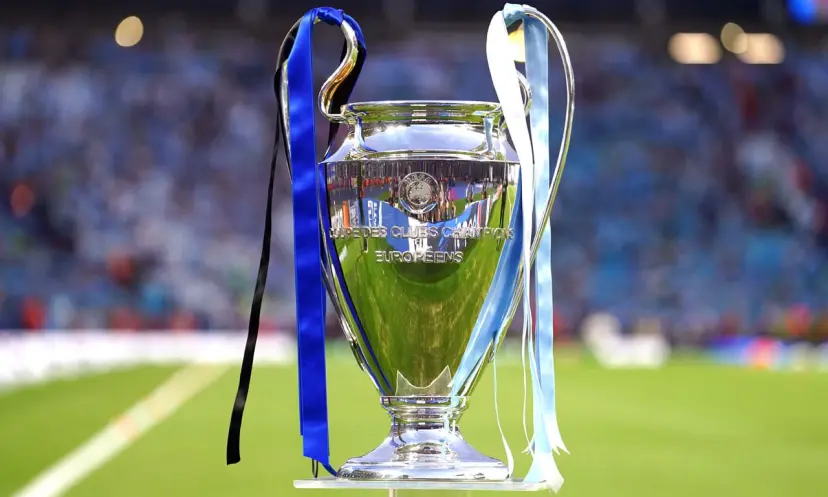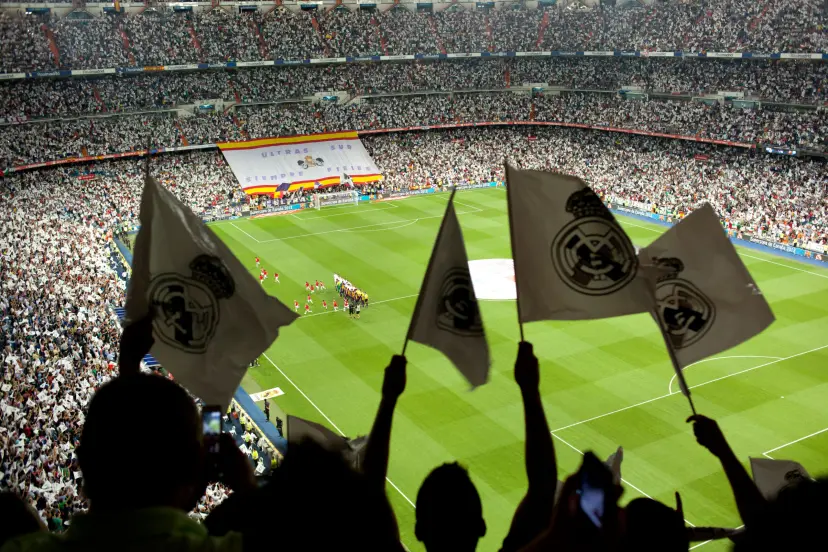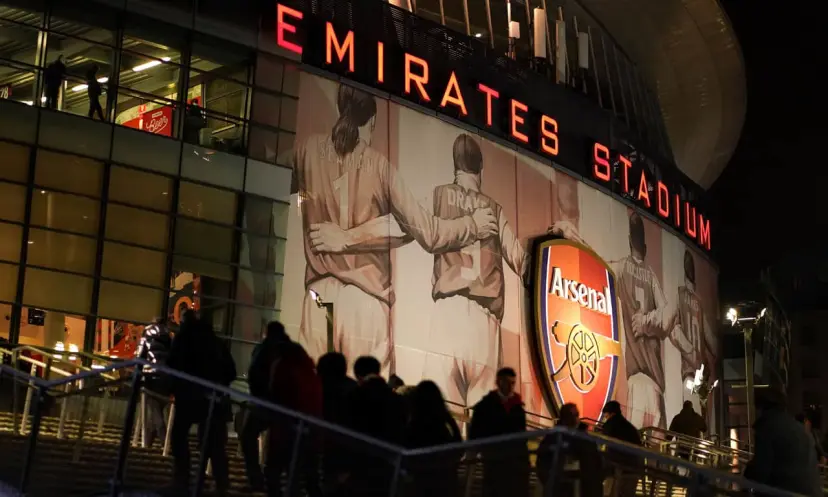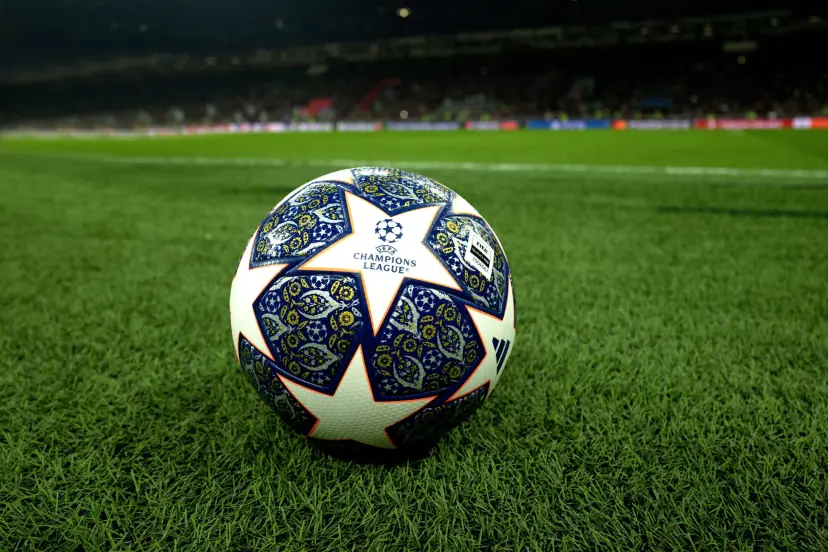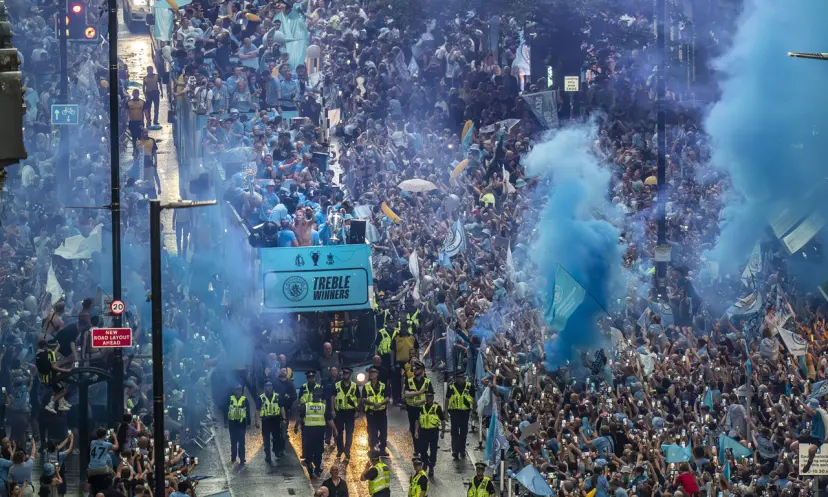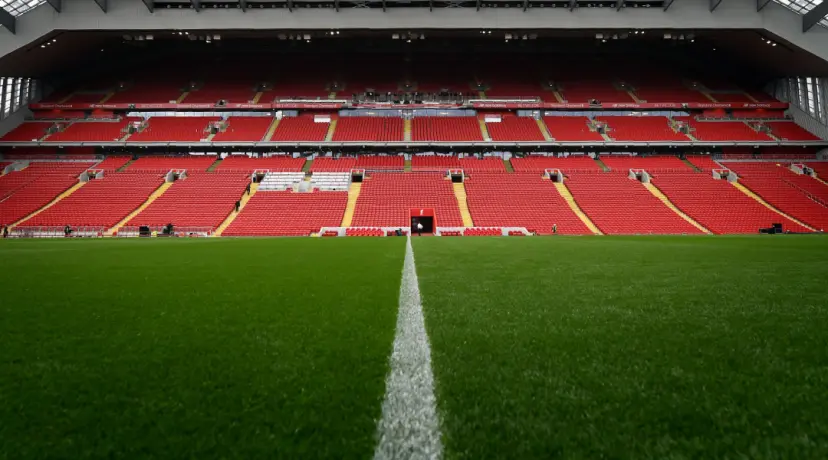Mark Clattenburg: Champions League final in 2016 was so tough
Published: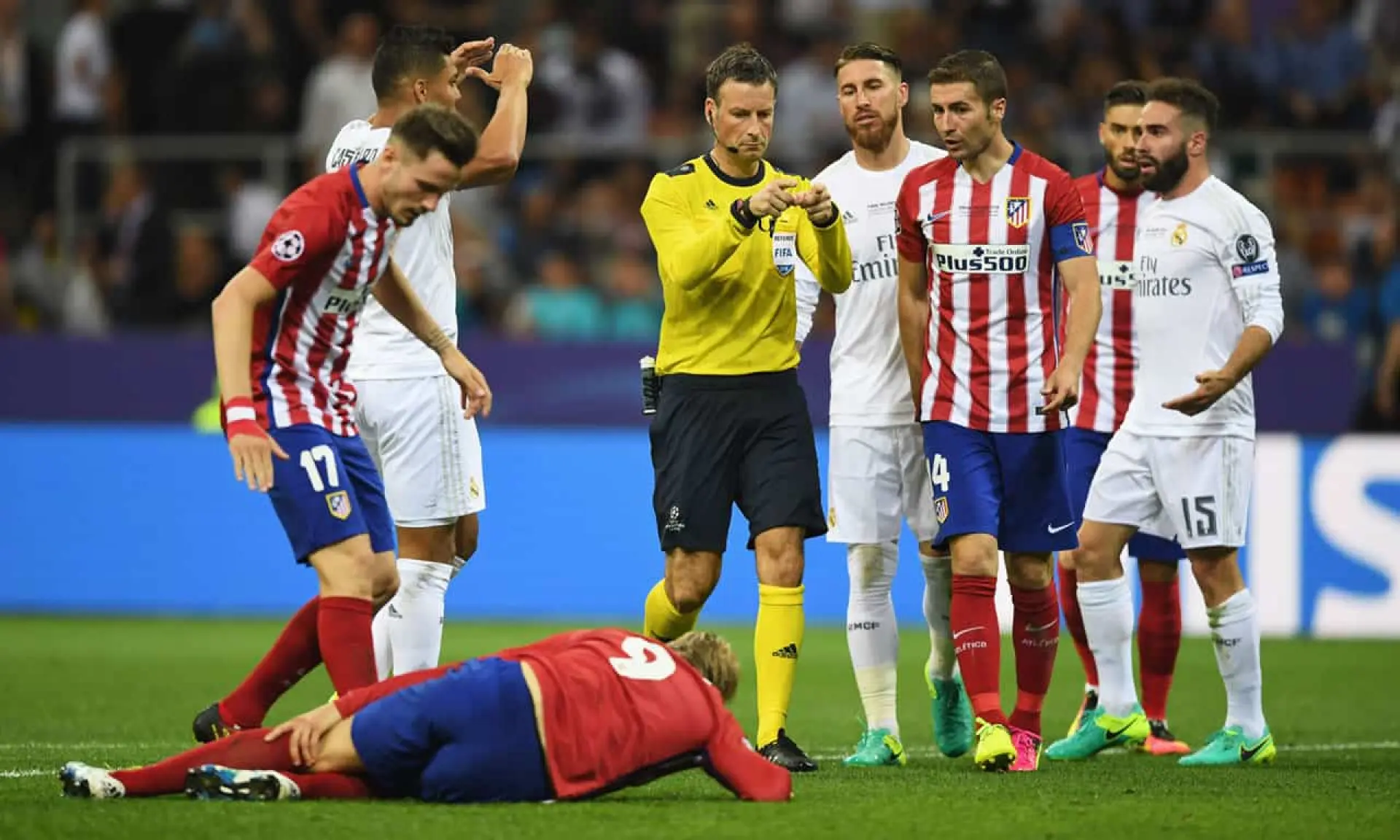
In the fourth part of our wide-ranging and exclusive interview with Mark Clattenburg, the former Premier League referee talked about the 2016 Champions League final between Real Madrid and Atletico at the San Siro which was settled by extra-time and a penalty shoot-out.
In part one he discussed the legendary Mike Dean, in part two he revealed how he was handed a one-week ban for attending an Ed Sheeran concert and in the third part he discussed his relationships with Sir Alex Ferguson, Jose Mourinho and Arsene Wenger.
It was so hot during that Champions League final in 2016, I just said to my team ‘please, get me through this match’
It’s interesting to see all of the talk around Janny Sikazwe, the referee who famously ended a game early at this year’s AFCON, and now he’s going to feature at the World Cup in Qatar.
I can only draw on my own experiences, and it’s easy to sympathise with him because I’ve been there myself, maybe not to that level, but in the Champions League final in 2016, it was incredibly hot inside the San Siro. I remember because you’re nervous on a stage like that. I didn’t eat or drink anywhere near as much as I should have done in the build-up before the match.
I can’t remember much about what happened in extra-time. Luckily enough in my own case, there wasn’t too much that happened late on in that game, but I remember saying to my team “please, get me through this match”.
I was really struggling mentally – not physically – to see things correctly. From a hydration point of view I was operating at a zero and working purely on adrenaline. But in the case of this referee at AFCON, he’d probably got so far down the line and so fatigued that he just wasn’t thinking correctly.

I’m sure his colleagues would have given him so much input, and it must have just not registered with him. He probably realises now that he should’ve just come off and let the reserve referee take over. He’d have been experienced enough to take over the game, but the way the situation went, he ended up in hospital with dehydration.
We had similar conditions in Colombia. I think it would have been around 2011 when I was working at one of my first FIFA tournaments. Because of the difference in altitudes, I just couldn’t breathe. I remember refereeing my very first match, and it didn’t matter what I did, I just couldn’t sprint. I was so fatigued in that match.
But FIFA must think highly of this guy, because they’ve given him another opportunity on the biggest stage at the World Cup.
People are quick to take the mickey out of each other in this day and age, and in football, it’s quite often the case that referees are the main butt of the joke. But when you look into what actually happened with Sikazwe and the problem he had, you understand how serious it was, and actually how dangerous a job it is at times.
I don’t know him personally, but it’s nice that he’ll be at the World Cup and he can now prepare to do a good job later this year. He’ll have to remember it’s going to be warm in Qatar in November as well! We’ll obviously all be watching from home and wondering how he’s going to get on, but he’s experienced enough to know it’s just another match, and he won’t let the occasion get to him. One thing he probably has learnt is making sure he gets enough water and fluids into him, to make sure the same thing doesn’t happen again.
My biggest mistake came in a Merseyside derby… I was out of my depth
Listen, I’m a human being and we all make mistakes. One game in particular springs to mind because it was a Merseyside derby. I had an absolute nightmare in the second half. I should have sent Dirk Kuyt off for one incident, but my assistant was shouting yellow, so I went with his decision because he was more experienced than I was.
Then I missed a penalty at the end, which, as an experienced referee, always hurts. At the time I was relatively inexperienced, but I can look back now with more years under my belt and say it was an easy decision to give. I just didn’t see it. Everything went against Everton that day, so I can understand why the feelings towards me on that day were so bad.
Sometimes you’ve just got to hold your hands up and admit you were out of your depth, I wasn’t good enough on the day.

It’s just the way things go sometimes. I got heavily criticised in the 2016 FA Cup final for not playing an advantage early on for Crystal Palace against Manchester United. Maybe the occasion got to me. I’ve refereed at Wembley lots of times but the FA Cup final is a special occasion. Referees are like footballers – whereas footballers want to get on the ball early doors, refs want to blow that whistle and get into the game.
Early in that game I blew my whistle when I probably shouldn’t have, which is unlike me because I loved playing advantage as much as I could. I didn’t give Connor Wickham the chance to go through on goal. Would he have scored? We’ll never know because all the Man United players stopped. However, what fans don’t understand is that had I not blown for that foul, I wouldn’t have cautioned Chris Smalling if I’d given the advantage. I cautioned him, and he went and got sent off later on in the match, so Palace actually had a chance later on in the match with the advantage of an extra player. That’s something they wouldn’t have had if I’d have let the game go without blowing up for a free-kick.
Tottenham 2-2 Chelsea, the night Leicester won the league. Did I ref the game right? Probably not…
Over the years I’ve refereed some huge games, especially towards the back end of the season when there’s so much to play for. Every decision you make is so big, the famous one being between Chelsea and Tottenham the year Leicester won the league. You know how much is at stake in a game like that, and as a referee you’ve got to apply the laws of the game, but you’ve also got to understand the occasion. And sometimes the occasion overrides the actual match itself – you’ve got to try and play your part.
Football’s not just a sport, it’s a spectacle, it’s entertainment. There are a lot of factors involved and the referee has a huge part to play in that.
I think just before half-time it kicked off in the technical area, [Mauricio] Pochettino was on the pitch, I think Diego Costa had his eye gouged out by Mousa Dembele. VAR would have had a field day in that game!

You’ve got to try to find a balance in moments like that and remember you were appointed as referee for a reason. I had to use my experience. You knew that Chelsea wanted to stop Tottenham and burst their bubble. Tottenham needed to beat Chelsea to keep up with Leicester. There was so much at stake, and Chelsea had had such a bad season that year, so it was a chance for them to put in a performance for their fans to stop their local rivals from getting close to the title.
Did I get the game right? Probably not. From a refereeing point of view, I probably didn’t guage the level the game was going to be at, because I didn’t realise until the first five minutes just how difficult it was going to be. If I go in with an early red or yellow card, would I have spoiled the game? Would I have been the centre of the analysis after the match?
One thing which was good for me was that everyone at the end of the match was talking about how wonderful the game was. You come in at half-time, and you knew the commotion that had just happened before the whistle, you’re sort of expecting more of the same in the second half, but it actually calmed down when we went back out.
When Chelsea were getting back into it and made it 2-2, that was when you realised Tottenham knew they were in big trouble and the title was slipping away from them. Then you noticed the younger players losing their cool a little – so what does a referee do in that situation? Do I apply the law and dish out red cards? There probably should have been two or three on that night – but we all came off the field of play at full-time, and it meant nobody could blame the referee that I’d influenced anything by sending a couple of Spurs players off. As a ref you can’t really win in those situations. All you can do is try your best to manage the occasion and take control of the match.
At the end of the day, that night and that game will go down – especially for a neutral – as one of the best and most intriguing matches to watch, and it was a pleasure for me to be involved in. It’s a great example of how exciting a spectacle a football match can be, without the use of technology. You look back on a night like that, and technology would have ruined all of that. VAR would have killed the game a lot earlier.
